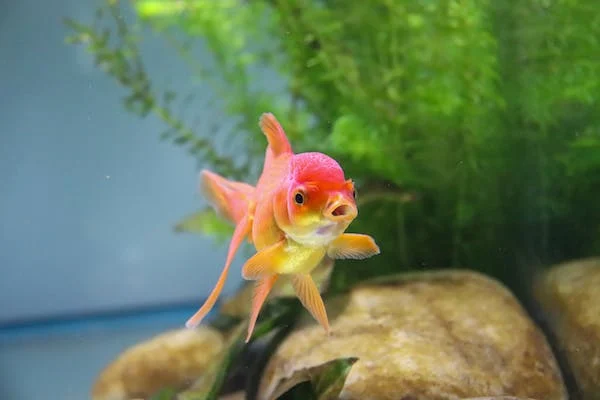When we think of pets, the usual suspects come to mind: dogs, cats, and maybe even a few exotic options like parrots or reptiles. However, there’s a growing trend among animal lovers that involves a much more unconventional choice: raising a fox as a pet. Yes, you read that correctly – foxes, those elusive and often misunderstood creatures from the wild, have found their way into the homes and hearts of some dedicated individuals. In this blog post, we will delve into the world of fox ownership and explore what it’s really like to raise a fox as a pet.
The Appeal of Fox Ownership
Before we dive into the nitty-gritty details, it’s essential to understand why someone might want to raise a fox as a pet in the first place. The appeal of fox ownership often stems from a fascination with these intelligent, cunning, and charismatic animals. Their striking appearance, with their vibrant coats and bushy tails, adds to their charm. Furthermore, many people are drawn to the idea of having a unique and unusual pet that sets them apart from the crowd.
Choosing the Right Fox Species
Foxes come in various species, and not all of them are suitable for domestication. The most common fox species kept as pets are the red fox (Vulpes vulpes) and the fennec fox (Vulpes zerda). Each has its unique characteristics and requirements.
The red fox, for instance, is larger and more social than the fennec fox but requires a larger living space. Fennec foxes are known for their small size and adorable appearance but can be quite high-strung and may not tolerate handling as well as red foxes.
It’s crucial to research and select the right fox species based on your living situation, available space, and your personal preferences.
Legal Considerations
Before embarking on the journey of raising a fox, you must be aware of the legalities involved. Laws regarding fox ownership vary widely by location, and in some places, it may be illegal to keep a fox as a pet. You’ll need to check with local authorities, wildlife agencies, and animal control to understand the regulations in your area.
If it is legal to own a fox in your region, you may still need to obtain permits or licenses, adhere to zoning restrictions, and meet specific enclosure and care requirements.
Housing and Enclosure
One of the most critical aspects of raising a fox is providing a suitable living environment. Foxes need spacious, secure enclosures that mimic their natural habitat. This typically includes an outdoor area with plenty of room to roam, dig, and play. Additionally, they need a safe and comfortable indoor space for sleeping and shelter from extreme weather.
Fencing is a key consideration when it comes to fox enclosures. Foxes are excellent climbers and diggers, so you’ll need a fence that extends both above and below ground level to prevent escapes. Adequate fencing can be expensive and requires regular maintenance.
Diet and Nutrition
Feeding a fox can be a bit more complex than feeding traditional pets like dogs or cats. Foxes are omnivores, meaning they eat a variety of foods. A typical fox diet includes a mix of commercial fox food, raw meat, fruits, vegetables, and insects. It’s essential to consult with a veterinarian experienced in exotic pet care to ensure your fox receives the right balance of nutrients.
Behavioral Challenges
Foxes are not like dogs or cats, and their behavior can be challenging to predict and manage. They have strong instincts, including hunting and territorial behaviors. This can lead to destructive behavior indoors, such as chewing on furniture or digging.
Socializing your fox from a young age is crucial to ensure they are comfortable around humans and other pets. However, it’s essential to remember that foxes are not naturally domesticated animals, and their wild instincts may never completely disappear.
Veterinary Care
Finding a veterinarian with expertise in treating foxes can be challenging, but it’s a critical aspect of fox ownership. Regular check-ups and vaccinations are necessary to keep your fox healthy. Foxes can also be prone to specific health issues, such as dental problems and obesity, so proactive veterinary care is essential.
Bonding and Interaction
Building a strong bond with your fox requires time, patience, and dedication. Foxes are often more independent than traditional pets, but they can form deep connections with their human caregivers. Regular interaction, playtime, and positive reinforcement are essential for fostering a trusting relationship with your fox.
Unique Challenges of Fox Ownership
Owning a fox as a pet comes with a set of unique challenges that may not be apparent at first glance. These challenges include:
a. Odor: Foxes have a distinctive musky odor that can be off-putting to some people. Regular cleaning and maintenance are necessary to manage this smell.
b. Noise: Foxes can be quite vocal, especially during breeding season. Their screams and calls can be loud and unsettling.
c. Longevity: Foxes have a relatively short lifespan compared to some other pets, with an average of 5 to 10 years in captivity. This means that you’ll need to prepare for the emotional impact of their eventual passing.
Raising a fox as a pet is not for the faint of heart. It requires a deep commitment of time, resources, and effort. While fox ownership can be rewarding for those with a genuine passion for these captivating animals, it’s essential to approach it with realistic expectations and a thorough understanding of the responsibilities involved.
Before deciding to bring a fox into your life, be sure to research local laws, consult with experienced fox owners, and carefully consider whether you have the means to provide a safe and loving home for these unique creatures. If you’re up for the challenge and have a genuine love for foxes, the experience of raising one can be both fascinating and deeply fulfilling.
















